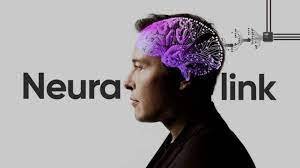"Exploring the Future of Brain-Machine Interfaces: An Overview of Elon Musk's Neuralink"
Neuralink is a neurotechnology company founded by Elon Musk in 2016 with the goal of developing brain-machine interfaces (BMI) that can help humans merge with artificial intelligence. The company is working to develop a technology that can be implanted into the human brain to improve cognitive function and potentially address neurological disorders such as Parkinson's disease and epilepsy.
The primary focus of Neuralink is to create a device that can enable people to interact with computers and other devices using their thoughts. The device, known as the "Neuralink implant," is designed to be implanted into the brain and consists of a small, flexible "threads" that contain tiny electrodes. These threads are inserted into the brain using a robot to minimize damage to surrounding tissue, and the electrodes are used to record and stimulate neural activity.

The goal of the Neuralink implant is to create a high-bandwidth, high-reliability communication link between the brain and computers, enabling people to control devices with their thoughts or receive sensory feedback from external devices. In the long term, Neuralink hopes to develop technology that can help people with paralysis or other disabilities regain control of their bodies or communicate more easily.
While the technology is still in its early stages, Neuralink has made significant progress in developing the implant and testing it on animals. The company has also received FDA approval to conduct human trials of the technology, and is currently working to develop a wireless version of the implant that can be used to treat neurological disorders.
Overall, Neuralink is an ambitious and potentially transformative project that could have far-reaching implications for the future of human-machine interaction and brain research. However, there are also concerns about the ethical implications of brain-machine interfaces and the potential risks associated with invasive brain surgery.
You've got a free upvote from witness fuli.
Peace & Love!